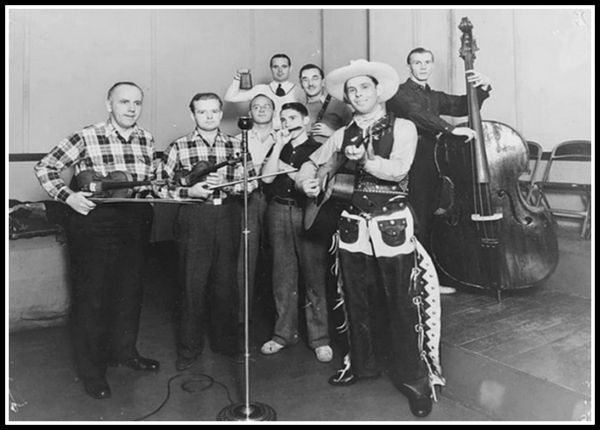Annotation:Woodchopper's Reel
X:1 T:Woodchopper's Reel L:1/8 M:C| K:D afdB AdFA|DFAd f2ef|(3gfe cB Aceg|a^gab a2f=g| afdB AdFA|DFAd f2ef|(3gfe cB Acec|dfec d4:| |:DFAd (3BdB AF|DFAd (3BdB A2|A,CEA ceaf|gfed cBAF| DFAd (3BdB AF|DFAd (3BdB A2|A,CEA ceaf|(3gfe cA d2FE:|
WOODCHOPPER’S REEL, THE. AKA and see "Pea Soup" (or “Soupe aux pois (La),” the French Canadian title), "The Woodchopper," “Woodchopper’s Breakdown (2),", "Woodchopper's Hornpipe.” Canadian (originally), American; Reel. USA, New England, Missouri. Canada; Maritimes, Prince Edward Island. D Major. Standard tuning (fiddle). AABB. Composition of the tune has been credited to the popular mid-20th century New Brunswick fiddler Ned Landry (e.g. by Perlman), born in St. John in Feb., 1921, who also composed "Little Burnt Potato," "Hillbilly Calypso," "Ontario Swing" and "Bowin' the Strings." Landry appeared on Don Messer's radio show Backwoods Breakdown in 1934 as a harmonica player, and soon formed his own group, the New Brunswick Lumberjacks, whose recordings begin in 1955. French-Canadian titles for the tune include “Reel de la soupe aux pois” (Pea Soup), the title in Montréal, and “Reel des bucherons” (Lumberjack’s Reel) or "Petit Bucheux (Le)" (Little Woodchopper). The melody has become popular in the American Mid West, probably picked up from Canadian radio broadcasts. It was, for example, in the repertoire of Nebraska fiddler Bob Walters and his protege Cyril Stinnett (1912 1986), who epitomized the "North Missouri Hornpipe Style" of fiddling (see abc below. Stinnet has the parts reversed from the original). “We’re very suspicious that this tune may be French-Canadian,” wrote John Hartford in 2001. The melody is sometimes attributed to Maritime fiddling great Don Messer (as, for example, on his MCA album “The Very Best of…”), however, this seems to have been an attempt by the record company to establish a copyright claim.

